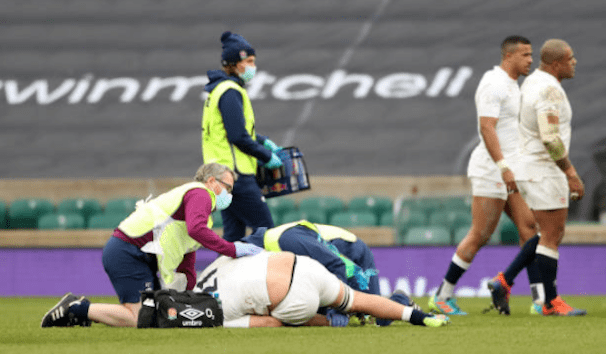Former Springbok captain Jean de Villiers says it will be difficult to impose better player safety protocols without jeopardising the quality of the rugby product.
Following the horrific knee injury to England flank Jack Willis in Saturday’s Six Nations encounter against Italy, De Villiers said the incident was reminiscent of the career-defining one he sustained against Wales in 2014.
Speaking to the Telegraph, De Villiers said of the Willis incident: ‘When I saw the injury occur, I certainly had flashbacks because there were so many similarities in the way that it happened and the pain that immediately occurs post that.
‘They are not happy memories. I just feel so bad for him because I know what he is going through and how long the road is to recovery. My thoughts are with him right now.
‘If I remember it correctly, I was cleaned out by Taulupe Faletau from my left-hand side and as he cleared me quite low it straightened my left leg. Then the weight came more side-on and another two guys were cleaning from the right hand side. The two forces from both sides, I just could take the weight and everything collapsed.
‘Sometimes in rugby, it is just the force plus the angle plus bad luck and you find yourself in a bad position.
‘I did my ACL, PCL, MCL, dislocated my patella, tore VMO muscle off and a hamstring. The rest of the knee was fine, but I had run out of body parts.’
But while De Villiers says he is all for the improvisation of player safety and protection at the breakdown, he believes there’s no clear and obvious way solution to police the breakdown.
‘In terms of clearing out and protecting the jackal, the head area is a no-go and rightly so. Your target area has become so small in terms of clearing out a player that it is so easy to get it wrong whether it is a head contact or a crocodile roll. We want to protect players but how do you do that and not jeopardise quality of product?’ he questioned.
‘I don’t have answer to that. It is so difficult because there are so many variables. The player jackalling moves a couple of centimetres, gets it wrong and it can be a big injury. The decisions that the governing body has to make on and off field are very, very difficult.’





